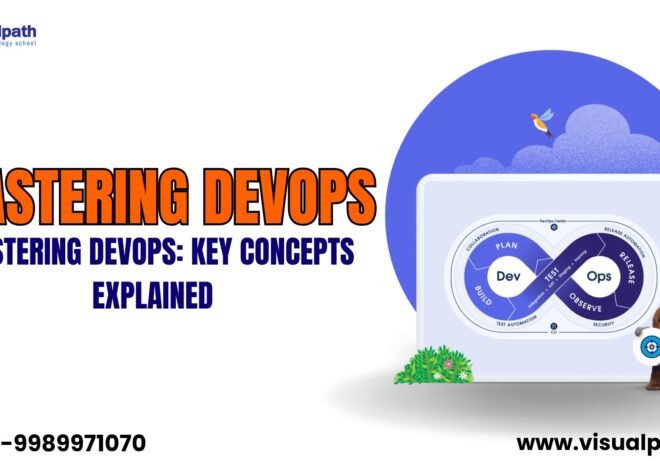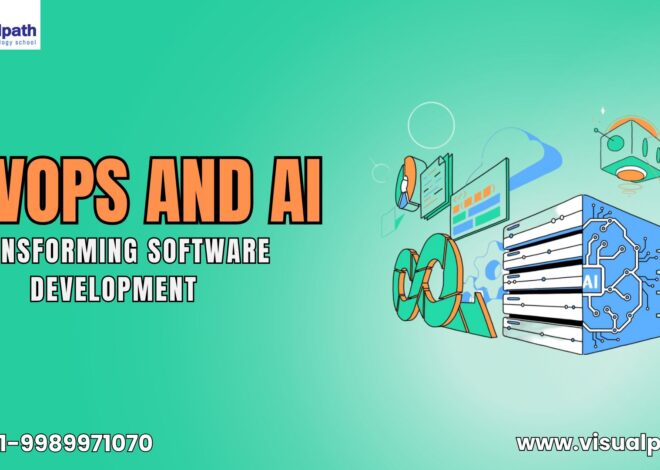Docker is a tool that enhances collaboration between developers and administrators by creating consistent, portable environments for applications. It is integral to many DevOps toolchains, enabling developers to write code without worrying about deployment environments. Docker containers package applications and their dependencies, ensuring they run uniformly across various systems. This streamlines the development, testing, and deployment processes.
What is Docker?
Docker is an open-source platform designed to automate the deployment, scaling, and administration of applications. Applications and their dependencies are packaged into containers to accomplish this.Containers are lightweight, portable units that run consistently across different computing environments, from a developer’s local machine to a production server.
Core Concepts of Docker
- Images: A Docker image is a read-only template that contains the application code, libraries, dependencies, and runtime needed to run the application. A Docker file contains a collection of instructions used to build images.
- Containers: Containers are instances of Docker images. They are isolated environments where applications run. Containers are ephemeral, meaning they can be started, stopped, moved, or deleted easily. DevOps Training
- Docker file: A Docker file is a script that contains a series of instructions on how to build a Docker image. It defines the base image to use, the software to install, and any configuration or setup required for the application.
- Docker Hub: Docker Hub is a cloud-based repository where Docker users can create, test, store, and distribute container images. It hosts official images for popular applications and operating systems, as well as images shared by the community.
- Volumes: Volumes are used to persist data generated by and used by Docker containers. They are essential for data persistence and sharing data between containers.
Benefits of Using Docker in DevOps
- Consistency and Isolation: Docker ensures that applications run the same way regardless of where they are deployed. Because containers offer isolation, conflicts between dependencies and programs are avoided.
- Scalability: Docker makes it easy to scale applications horizontally by adding more container instances. This is particularly useful in micro services architectures where each service runs in its own container.
- Efficiency: Containers are lightweight and use system resources more efficiently than traditional virtual machines. They share the host system’s kernel, which reduces overhead and improves performance. DevOps Training Online
- Portability: Docker containers can run on any system that supports Docker, including different cloud providers and on-premises servers. This portability simplifies the deployment process and avoids vendor lock-in.
- Continuous Integration and Continuous Deployment (CI/CD): Docker integrates seamlessly with CI/CD pipelines, enabling automated testing, building, and deployment of applications. This speeds up the release cycle and ensures higher quality software.
Docker in the DevOps Workflow
- Development: Developers use Docker to create consistent development environments. By writing a Dockerfile, they can define the exact environment needed for their application, ensuring that “it works on my machine” issues are minimized.
- Testing: Automated testing is a critical part of the DevOps workflow. Docker allows for the creation of disposable container instances that can be used to run tests in isolated environments, ensuring that tests do not interfere with each other.
- Continuous Integration (CI): In a CI pipeline, Docker is used to build and test applications in a consistent environment. This guarantees that code modifications are verified prior to being integrated into the primary codebase.
- Deployment: Docker simplifies the deployment process by packaging applications and their dependencies into containers. These containers can be deployed to any environment that supports Docker, including cloud services and on-premises servers.
- Monitoring and Logging: Monitoring and logging are essential for maintaining the health and performance of applications. Docker provides tools for monitoring container metrics and collecting logs, which can be integrated with existing monitoring solutions.
Getting Started with Docker
- Install Docker: Begin by installing Docker on your local machine. Docker offers installation packages for Windows, macOS, and Linux, among other operating systems. AWS DevOps Training
- Learn the Basics: Familiarize yourself with Docker commands and concepts. Start by running basic containers, exploring Docker Hub, and writing simple Docker files.
- Build and Run Your First Container: Create a Dockerfile for a simple application, build a Docker image, and run it as a container. This hands-on experience will help solidify your understanding of Docker.
- Explore Advanced Features: Once you are comfortable with the basics, explore more advanced features such as networking, volumes, and Docker Compose for multi-container applications.
Conclusion
The development, testing, and deployment of apps have been completely transformed by Docker. Its ability to provide consistent, isolated environments and seamless integration with DevOps practices makes it an invaluable tool for modern software development. By understanding the core concepts and benefits of Docker, beginners can harness its power to improve their DevOps workflows and deliver high-quality software more efficiently. As you continue your journey with Docker, you’ll find that its flexibility and scalability open up new possibilities for innovation and growth in your projects. DevOps Online Training
Visualpath is the Leading and Best Software Online Training Institute in Hyderabad. Avail complete DevOps Training Worldwide. You will get the best course at an affordable cost.
Attend Free Demo
Call on – +91-9989971070




